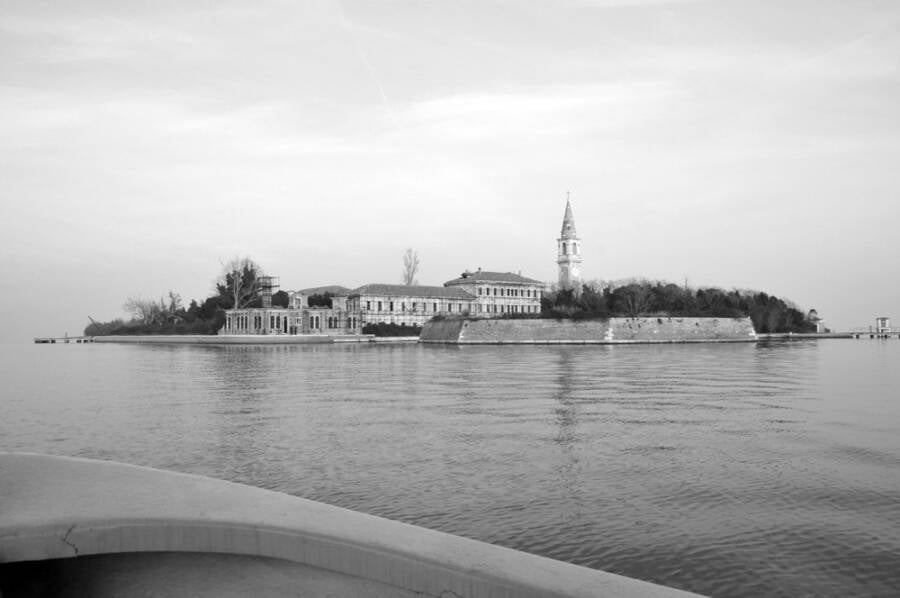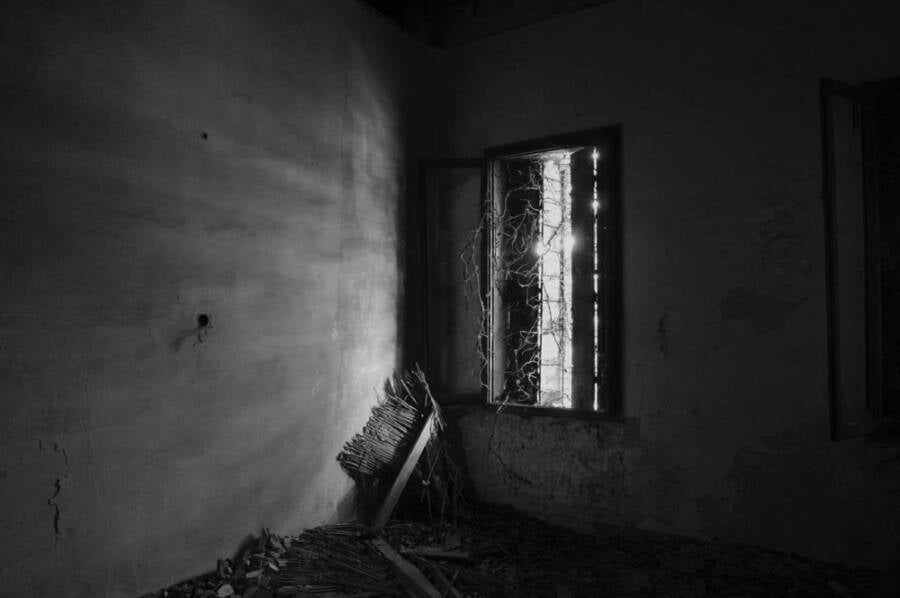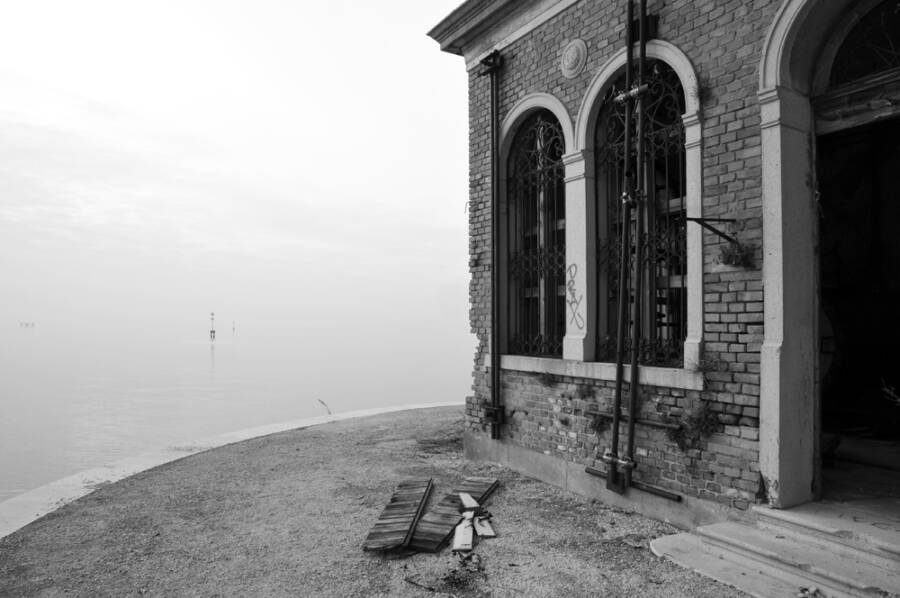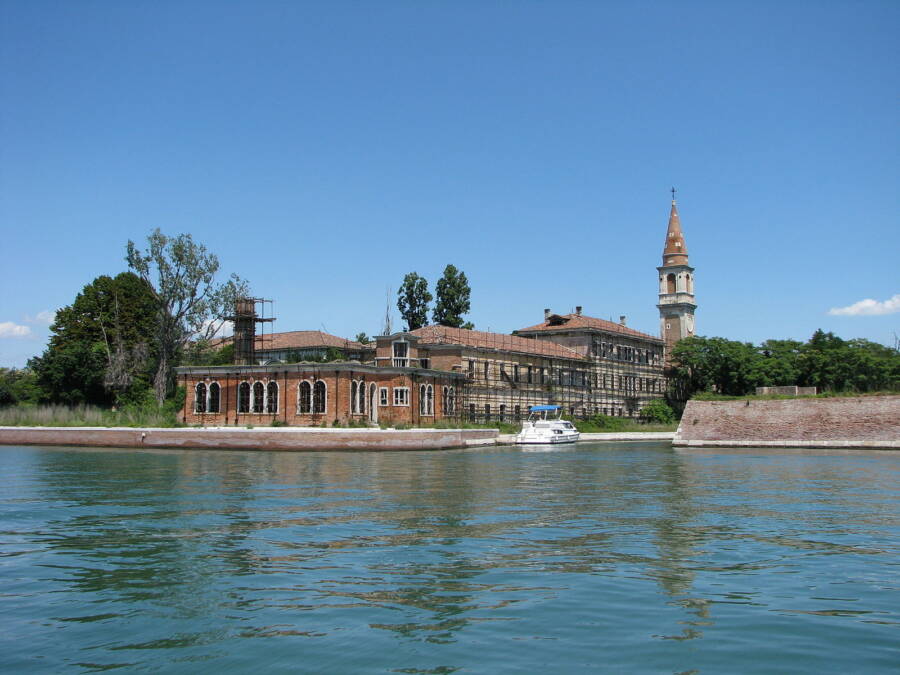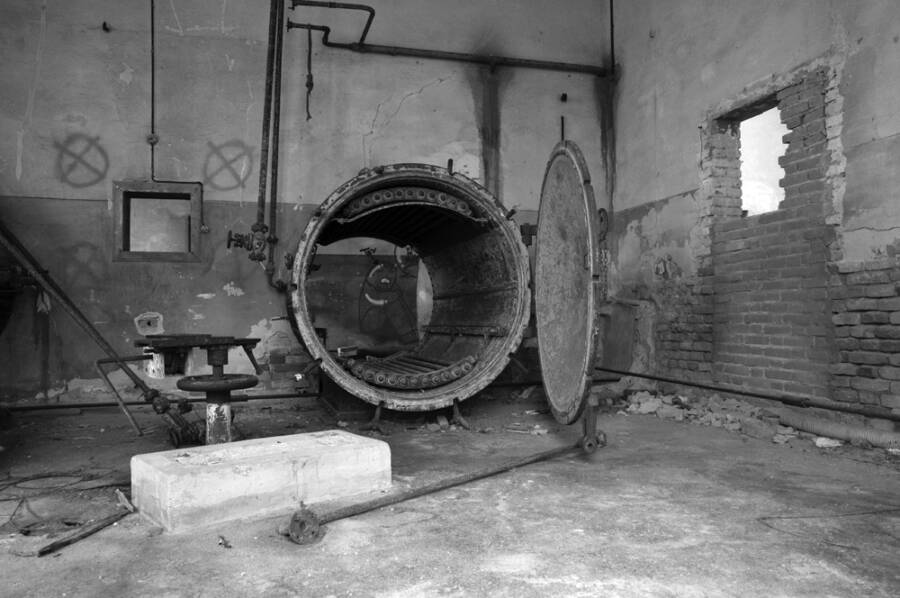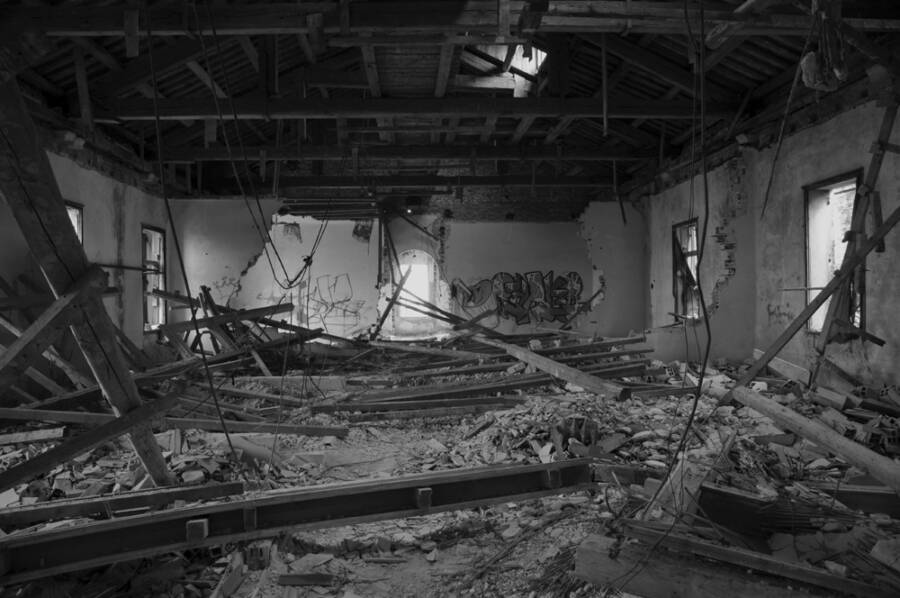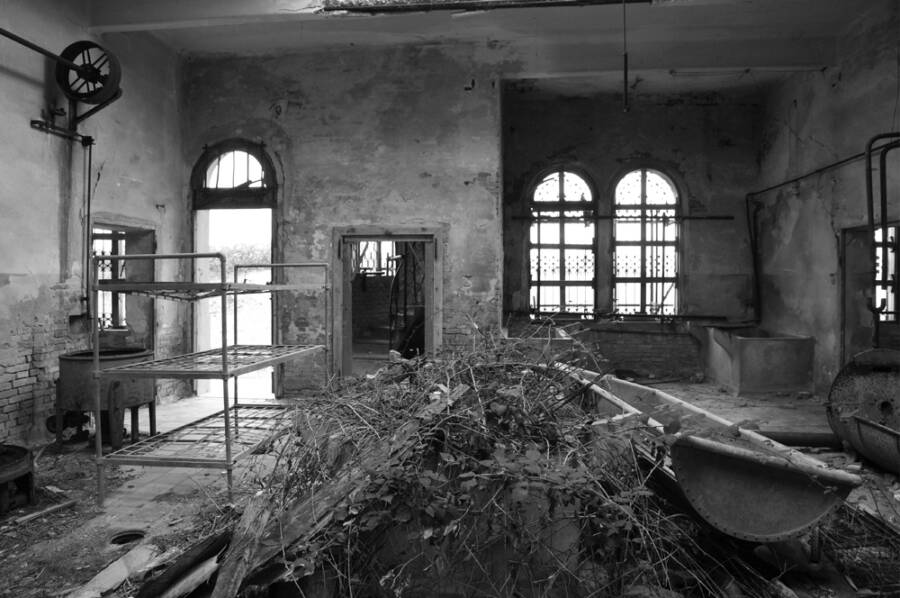The Venetian “Plague Island” Of Poveglia
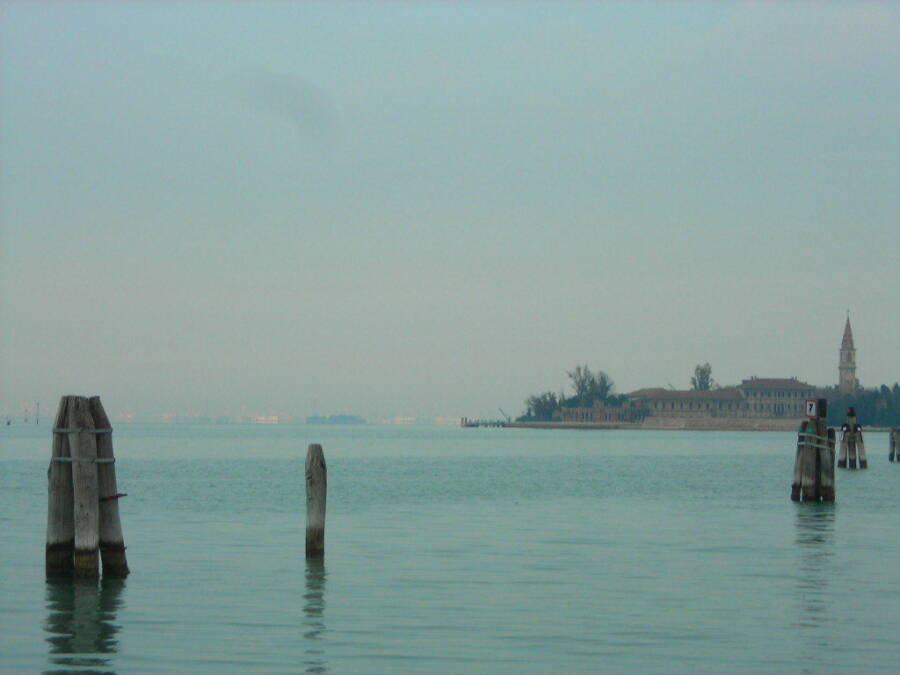
Wikimedia CommonsItaly’s Poveglia Island has a long history of housing victims of the bubonic plague.
Hidden in an isolated Venetian lagoon in Italy, Poveglia Island was both a quarantine center for bubonic plague patients and a mass grave for plague victims as early as the 16th century. As such, it’s been dubbed the “Island of Ghosts,” and some believe it’s one of the most haunted places in Europe.
As Europe’s dominant trading port during the late Middle Ages and the Renaissance, it was imperative for Venice to keep functioning even during terrible outbreaks of the bubonic plague.
In order to maintain a sense of normalcy, officials established isolated islands like Poveglia to quarantine the sick — though few who were sent to the island ever recovered enough to return to society. Over the centuries, more than 160,000 plague victims were banished to the 17-acre island to die.
Those who perished on the island were quickly burned, and some have claimed that half of Poveglia’s soil is made up of human remains.
As time went on, Poveglia was repurposed as a place that housed people suffering from mental illness. In the early 20th century, the island's mental hospital was the subject of dark rumors about a doctor carrying out horrific experiments on his patients — and then meeting his own demise after he fell from a bell tower. Though there's no hard evidence to support these claims, what is undeniable is that decades after the mental hospital closed in 1968, Poveglia has become a draw for countless curious explorers.
The island has long been off-limits to visitors, but some have managed to reach the island on their own. Some who've explored Poveglia have claimed to experience "hauntings" and other forms of paranormal activity there.
Poveglia Island's fate was long in limbo, and it was once considered for an auction. As of 2025, a group of local Venetians has taken possession of the island, and they hope to transform the site of the infamous abandoned hospital into an urban park — open only to those who live in Venice.
